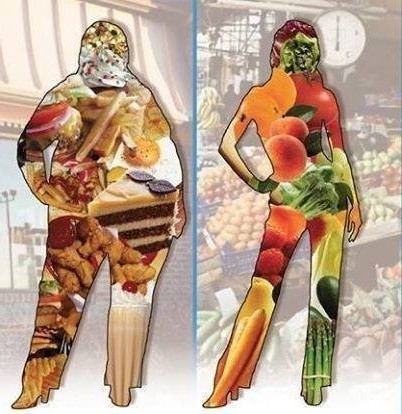In 2013, surveys suggested that over 150 million Americans were either classified as obese or overweight. And the most devastating fact is that many of these people felt frustrated, depressed, and helpless to do anything about it.
While certain health gurus might like you to think that you need to purchase their health programs and diet foods to change the numbers on your health report–the truth is that your health can be improved just by focusing on seven simple aspects of your daily life.
Tip #1: Drink Moderately
In a study published in the March issue of the Internal Medicine, researchers found that a moderate amount of alcohol might help keep off the pounds. The study followed 22,000 women over the course of 13 years, tracking their weight gain, versus their alcohol consumption. The study was concluded by suggesting drinking alcohol (15 to 30 grams) offers 30 percent less chance of gaining weight, than not drinking any alcohol at all. Red wine was noted as being the favored elixir for avoiding unwanted pounds. While you don’t have to give up alcohol entirely, there are ways to avoid alcohol so it doesn’t affect your waistline.
Tip #2: Eat Like Your Dining on Death Row
While this may not exactly be a news flash, it is an important reminder that by eating slowly, you give your stomach more time to send signals to the brain, telling it that it’s time to drop the fork. Studies show people who eat a meal leisurely in 30 minutes, consume less calories than those who eat the same meal in five. In addition, studies suggest that fasting or crash dieting is up to three times more likely to produce weight gain, than just eating normal portions.
Tip #3: Family-Style
Remember when mom would make you turn off the television before coming to the dinner table. Now that you are grown up, you can do whatever you want, which includes eating every meal in front of your favorite media devices if you want. It turns out, however, that such devices distract your attention, causing you to eat more than you would if you were sitting at a table, paying attention to what you’re putting in your mouth.
Tip #4: You are What You Last Ate
Researchers at Birmingham University have reported that remembering what you eat keeps you from snacking throughout the day. The study came about when a group of female volunteers were invited to lunch at the university. After lunch was over, half the group was asked to write about their meal, while the other half was asked to write about their journey to the campus. The researchers then offered the women biscuits, and the researchers noted that the ones who had written about their lunch, snacked less than the ones who wrote about their journey.
Tip #5: Cash for Calories
Research suggests that grocery shoppers who pay with cash, buy less junk food, overall. The researchers speculate that there are two factors at play here. First, when buyers are faced with the reality of watching their hard earned currency leave the palm of their hand, as opposed to plastic (credit), they streamlined their purchases to include less impulsive purchases (a.k.a. goodies). Second, they found that most impulsive grocery purchases tend to be junk food, so besides the influence of paying cash, another way to improve the health of your cart is to resist impromptu food buying in general. Smart choices can lead to results. Choosing nutritious foods that provide the right amount of vitamins and essential nutrients are just the start. The relatively small amount of calories in a medium avocado make it an ideal alternative to saturated fat laden alternatives.
Tip #6: Don’t Skip Your Wheaties
Several studies by the Journal of American Dietetic Association have concluded that breakfast skippers on average weigh more than those who eat a hearty meal in the morning. The scientific explanation behind these studies, says that by skipping the first meal, the body’s glucose in the blood drops substantially, causing hunger, irritation, and lethargy by the middle of the afternoon. The end result is more binging, more junk food craving, and less motivation to hit the gym.
Tip #7: Littlest Sleeper–Biggest Loser
Most women would never think sleep had anything to do with their overall body shape, but according to research, it does. Studies indicate the amount of sleep you get each night has a direct correlation with the amount of leptin and ghrelin hormones found in the body the next day. You may not know these hormones by name, but suffice to say this combination is an all-you-can-eat buffet’s worst nightmare. Lack of sleep drives the levels of leptin (satiation meter) down, which is a polite way of saying, you’ll feel like a bottomless pit. Sleep deprivation drives Ghrelin (appetite trigger) levels up, ensuring you’ll have the munchies all day long.

